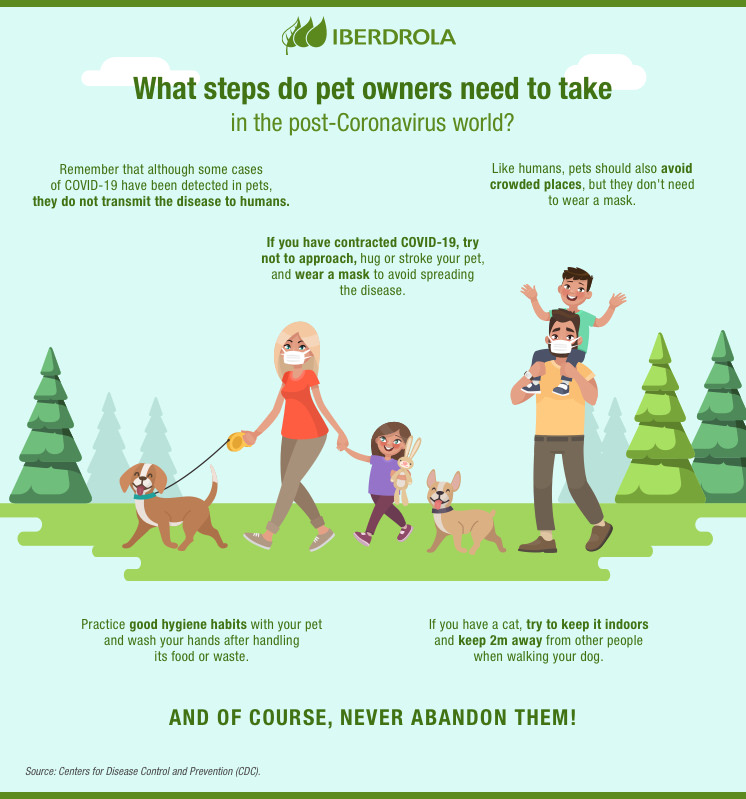Benefits of Pets
The power of pets: great allies in achieving well-being
Pets can decrease stress and feelings of loneliness, improve heart health, and even help children with their emotional and social skills. This is claimed by the NIH (National Institutes of Health), a group of United States government medical research institutions. If you're in doubt about whether to get a pet, read on to discover all the benefits.

During the lockdown period implemented almost worldwide because of the COVID-19 pandemic, taking the dog for a short walk became a moment of relaxation, almost freedom, in the face of a complex situation that left us at a loss about how to spend time at home. For those who usually live with animals, those months confirmed something they already knew: their dog, but cat, fish, parakeet or guinea pig too, to give some examples, are much more than just a pet.
WHY GET A PET? IS IT BETTER TO ADOPT OR BUY?
According to the biophilia hypothesis developed by the American biologist Edward O. Wilson, humans possess an innate affinity for the living creatures and there are physiological parameters that indicate the benefits of contact between people and animals. For example, in the presence of dogs and cats we release the pleasure hormone oxytocin, while the level of the stress hormone cortisol decreases.
If you're considering getting a pet, you might be asking yourself: is it better to buy or to adopt? Both options are perfectly valid, but when making a decision keep in mind that in the United States alone, shelters house 6.5 million dogs and cats. In fact, during the lockdown period, adoptions skyrocketed in the United States and around the world. Before making a decision, remember that receiving the unconditional love of a pet entails a series of obligations: finding it, taking care of its health and nutrition, and never abandoning it!

ADVANTAGES OF HAVING A PET
The benefits of having a pet to greet you at the door or to snuggle with on the sofa are varied. Let's take a look at some of them:
Emotional benefits
They help combat depression and loneliness, as their presence stimulates physical contact and communication. In situations such as lockdown, pets have provided valuable emotional support to their owners.
Anti-stress benefits
Pets help keep stress at bay. Dog owners get more physical exercise from walking them, and several studies show that the slow nature of cats mitigates anxiety. In addition, their purr produces a vibration that is considered to be relaxing.
Educational benefits
For kids, looking after a pet is extremely educational: it teaches them to take responsibility for a living being, to stick to routines and to be more disciplined. It also instils values like empathy and respect.
Social benefits
Having a dog not only gets you outdoors, it also helps you to socialise with other dog owners. For older people, who often live alone, having a dog is very positive as it helps to establish contact with other people.
HEALTH BENEFITS OF HAVING A DOG OR CAT
According to a study by the CDC, having a dog increases the level of endorphins, a peptide that functions as a neurotransmitter and is responsible for making us feel good; and reduces heart rate and blood pressure by lowering triglycerides.
Researchers from the University of Minnesota Stroke Institute monitored more than 4,000 people over ten years to look at the relationship between stress and cardiovascular problems. They found that cat owners were 30% less likely to die from a heart attack due to having lower stress levels.
ANIMAL-ASSISTED THERAPY
The relationship between pets and health is nothing new: as early as 1790 in Great Britain, animals were used as therapy for the sick in some sanatoriums. This trend continues today thanks to various initiatives in hospitals around the world. These include Animal Assisted Intervention (AAI), in which an animal is incorporated as part of a treatment with the direct aim of improving the patient's physical, social, emotional and cognitive functions.




